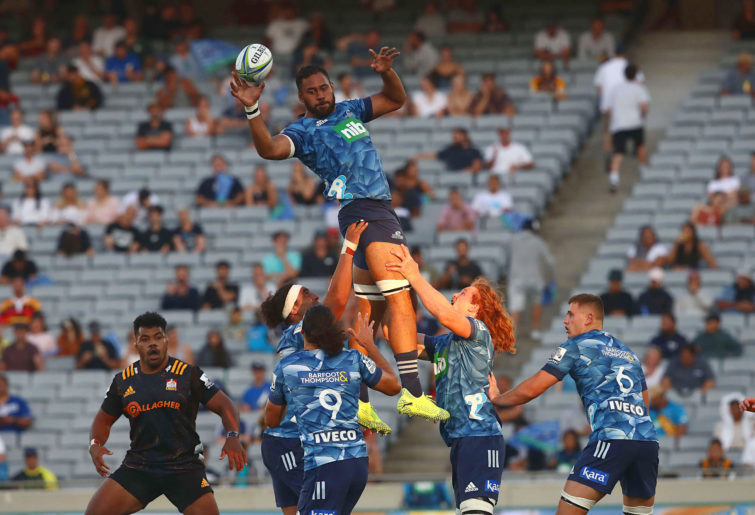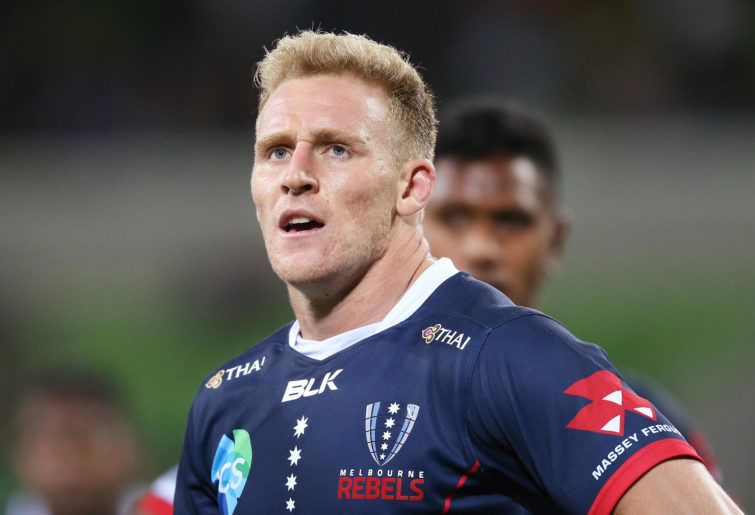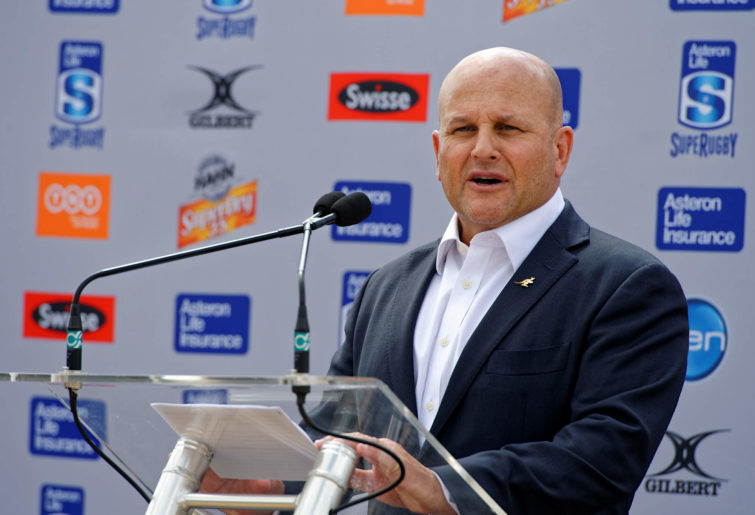Sunday afternoon, 15 March, in Canberra when the Brumbies wiped the floor with the Waratahs 47-14, the final match before Super Rugby was abandoned, seems an age ago.
Perhaps not so much for suffering Tahs fans, but for everyone else it is well overdue that top-flight rugby makes its return in Australia.
A lot has happened in that time. Players have retired (Damien Fitzpatrick, Chris Alcock and others), some have been released willingly (Henry Speight), others have wandered off of their own volition (Harry Hockings, Isaac Lucas and Izaack Rodda), with Kurtley Beale somewhere in between.
Other players have found new homes, the Western Force have been bolstered by the return of players like Jono Lance and Ollie Atkins from overseas, and men’s Sevens players Lewis Holland and Lachie Anderson are hooking up with the Melbourne Rebels.
It is also true that not much has happened in that time. Players have endured weeks of uncertainty and repetitive training, initially in isolation and then graduating from small units and finally into full contact training.
Having watched the NRL, AFL and New Zealand rugby return over recent weeks, they are simply busting to play.

Super Rugby Aotearoa is underway (Phil Walter/Getty Images)
Throughout they have been subject to stringent COVID-19 protocols, in the case of the Melbourne Rebels unable to shower and socialise in their regular team room, forced to use makeshift weight training facilities and train inside a wire enclosure on Gosch’s Paddock.
It’s a story replicated across the franchises, with all operations committing to meet COVID-safe protocols to ensure a trouble-free return to rugby this Friday, although a few late curve balls have had to be negotiated.
With COVID-19 cases on the rise again in Melbourne and the Rebels anxious to avoid any potential compulsory 14-day stand-down period imposed by other state governments, an early transfer to Canberra was arranged.
The Waratahs thought it would be a good idea last week to bring in ex-NRL great Paul Gallen to address their group, momentarily forgetting about the protocols or perhaps considering that, with the NRL setting the pace with respect to return to play, different rules applied.
And then there was the ‘great players strike of 2020’.
On Thursday the Australian led with the headline ‘Strike threat plunges code into crisis’, with reporter Jamie Pandaram claiming that Melbourne Rebels players were “openly talking about not boarding the plane” (to Canberra).
If Rugby Australia had a dollar for every time this and other publications had claimed they were about to be bankrupted or that the sport was ‘on its knees’ or ‘in crisis’, Australian rugby would in fact be swimming in cash.

Reece Hodge of the Rebels. (Photo by Michael Dodge/Getty Images)
Serial offender Alan Jones followed up the next day, even posing the question “will we have a game by 2027?”.
Here’s a tip. Yes, we will and, if Australia is successful in obtaining the hosting rights for the 2027 World Cup, no amount of Jones and others bashing the game week in, week out for another seven years will prevent it from being a wonderfully successful event.
It is true that there is discomfort around the salary reductions players have been forced to endure. This pain will continue when the penny finally drops – in Australia and in other nations around the world – that salary caps are in the process of being reduced.
But a strike? In today’s environment? Really?
There have been many famous (or infamous) player strikes in professional sports history, most of them in US professional sports, almost all of them concerning players and owners fighting over their respective share of an ever-growing pie.
There has never been a successful strike in a combined pandemic-recession where hundreds of thousands of people have lost their jobs or are receiving government assistance, where the employer plainly has no money and where the broadcasting revenue for the new competition is not even covering expenses for that competition.
There is widespread empathy and sympathy for the players’ predicament. There is also a view that they inhabit a bubble and, because they look towards other rugby markets with envy, are in some instances advised by managers who don’t necessarily have a grounded, bigger-picture view. THere’s also the consideration that they belong to a generation that has never experienced real economic hardship and have yet to grasp the realities around the pandemic.
Another factor is the disparity in contract values between players. Many are on base-level contracts, a situation that means that a Super Rugby contract represents an ‘opportunity’ for them as opposed to a financially rewarding career choice.
These are guys who play for the love of the game and because they hold on to the dream of a richer contract somewhere in the future. Currently on two-fifths of bugger all, are they really going to strike and forgo the opportunity to play just so they might receive three-fifths of bugger all?
Don’t discount the possibility of further unrest and potential action down the track, particularly if the ex-captains group can persuade the players that their vision for change and forward progress in Australian rugby can only now be achieved through the lever of a player revolt.
But if that was to happen, it wouldn’t be a strike for the reasons this one was painted to be. It would be the players being used as pawns in a different battle.
Interim CEO Rob Clarke has provided gravitas, transparency and a firm, stern hand. He has no spare money to play with.
He also understands that the only thing players and fans want to see this coming weekend – as much as it might not suit the rugby’s media crisis merchants – is some football.
The people to thank for that are a ‘return to play committee’, which comprised Ben Whittaker, Anthony French, Warren McDonald, Tony Harris and Gerard McEvilly from Rugby Australia plus Rebels CEO Baden Stephenson and Matt Toomua and Justin Harrison representing the players.
Given the enormous pressure Rugby Australia has been under – the uncertainty around a broadcast deal for 2020, drafting in the Western Force, the challenges of constructing a multi-state competition in a COVID environment – it’s quite an achievement to be rolling out Super Rugby AU this week.

Rob Clarke (Hugh Peterswald/Pacific Press/LightRocket via Getty Images)
By the way, if you’re confused about why Toomua and Harrison would work so constructively as part of the return to play committee, at the same time Rugby Union Players Association is reported to be threatening strike action, don’t forget that this is Australian rugby. Nothing is ever simple.
There may have been frustration on the part of some fans in watching other sports return earlier, but realistically, given concerns of the coaches and conditioning experts around contact, wanting to allow time for what amounts to another preseason, there can hardly be too many complaints.
The end result is a full ‘home-and-away’ fixture complete with a two-week finals series, although, as demonstrated already with the Rebels, a willingness on the part of all involved to remain flexible and adaptable to changes in circumstance.
Stephenson outlined on Friday how, having got this far, the committee had begun to feel comfortable but that, “The positive test of an Essendon AFL player was a huge wake-up call for us and a reminder of how we can’t afford to take our eye off the ball at any stage”.
There are hopes that by the latter stages of the competition fans will be allowed to attend in numbers, but Stephenson and his fellow CEOs have been buoyed by the ongoing support from sponsors and members despite lack of engagement in this massively disrupted season.
Another thing that won’t change is the competitiveness on the field. While the Australian franchises have gone through a period of unprecedented cooperation, there are coaches with points to prove and Wallabies spots up for grabs. The unusual situation has also drawn teams closer together. Expect to see plenty of spirit and passion.
And ignore any public utterances from the Force and their fans about low expectations – there are still scores to be settled and they are not in the competition to make up numbers.
Later this week, after the matchday squads are finalised, we will swing our attention to possibilities and predictions. But for now, Stephenson summed this up nicely on behalf of all franchises, saying, “Even though it’s a blessing to be playing at all, the intensity and will to win is as strong as ever”.
That’s exactly as it should be.
If we get matches half as enjoyable as the Blues’ tense 27-24 win over the Highlanders on Saturday night, Super Rugby AU will be on the right track.
The Highlanders discovered it’s a long step down from Ben Smith to Scott Gregory at fullback, although there was much to admire about their magnificent second-half fightback.
The match swung on a late decision to turn down a handy penalty goal that would almost certainly have sent the match into extra time. But the Highlanders felt that they had all the momentum and the better lineout, so they rolled the dice on winning the match there and then.
Never before has a Kiwi crowd cheered and celebrated a maul being held up in the way that the Blues were cheered. They will need to improve to test the Crusaders, but hard-fought wins like this are another important building block in the development of this side.
Yesterday’s match in Christchurch was a slippery affair, a sharp Will Jordan providing the individual highlight in the Crusaders’ 18-13 win.
The penalty count in both matches was noticeably down on previous weeks. The Australian franchises who have been watching closely, and who have got their acclimatisation out of the way on the training track will be setting themselves up for a big advantage.































































































